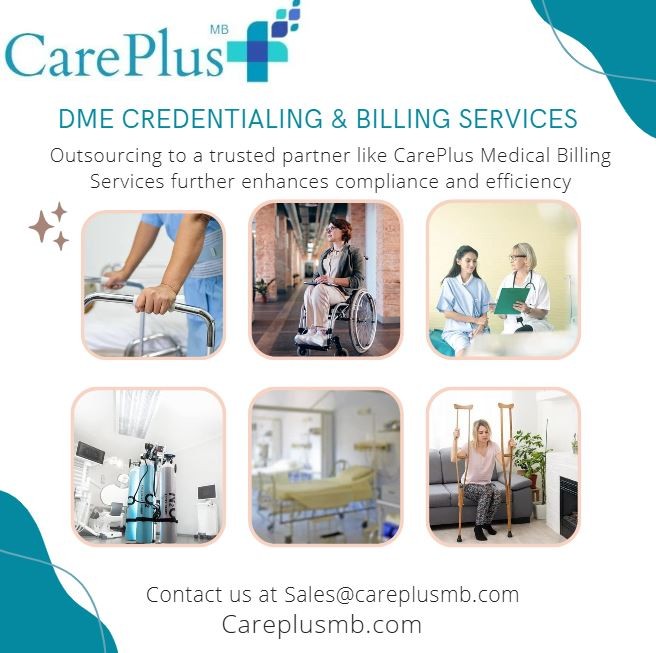Enhancing Durable Medical Equipment (DME) Billing Compliance: Strategies to Mitigate Audit Risks
Durable Medical Equipment (DME) billing compliance is a cornerstone of operational integrity for healthcare providers. Non-compliance can result in severe financial penalties, legal repercussions, and reputational damage. The DME sector is particularly vulnerable to audit scrutiny, underscoring the importance of adhering to stringent billing protocols.
According to the Centers for Medicare & Medicaid Services (CMS), improper payments for DME have reached an estimated error rate of 27% in recent years. These errors, often stemming from documentation lapses, coding inaccuracies, and compliance gaps, account for billions of dollars in lost revenue. With heightened enforcement against fraud and abuse, healthcare providers must prioritize robust compliance measures to mitigate risks and promote ethical billing practices.
Key Measures to Strengthen DME Billing Compliance
1. Accurate Documentation
Thorough and precise documentation is the foundation of billing compliance. Claims should align seamlessly with medical codes and physician orders to minimize denials and audit risks. Leveraging efficient document management systems can streamline this process, while incorporating checklists and peer reviews ensures completeness and accuracy, particularly for complex cases. Regular training for staff on proper documentation practices further strengthens compliance and reduces errors.
2. Ongoing Staff Training on Compliance
Billing regulations and coding standards are constantly evolving. Conducting regular training sessions keeps staff updated on the latest requirements and fosters a culture of compliance. Training should emphasize accurate coding, proper use of modifiers, and adherence to regulatory updates. A well-trained team not only enhances claim accuracy but also expedites processing, reducing the likelihood of audits.
3. Implementing a Comprehensive Auditing Process
Internal audits are a proactive measure to ensure claim accuracy and identify errors before submission. Regular audits can pinpoint patterns of recurring issues, enabling corrective action and continuous improvement. A structured auditing framework not only enhances transparency but also mitigates the financial and reputational risks associated with non-compliance.
4. Cultivating Strong Relationships with Referring Physicians
Collaboration with referring physicians is essential, as their documentation directly impacts billing accuracy. Educating physicians on compliance requirements and maintaining open communication channels help align referrals and orders with billing codes. These relationships improve documentation quality and foster efficient claim processing, contributing to better patient care and reduced audit risks.
5. Continuous Monitoring of Billing Patterns
Monitoring billing trends is a crucial compliance strategy. By identifying anomalies such as excessive modifier usage or coding irregularities, providers can address potential issues before they escalate. Continuous oversight ensures accountability, reduces the likelihood of fraudulent activities, and strengthens overall billing integrity.
6. Conducting Pre-Audit Risk Analysis
Pre-audit risk analysis evaluates the usage of modifiers and procedure codes to identify high-risk patterns. This practice, often facilitated by billing experts, ensures that claims align with supporting documentation. By proactively addressing irregularities, providers can enhance compliance and reduce the likelihood of triggering audits.
7. Outsourcing to a Billing Expert
Engaging a specialized billing service, such as CarePlus Medical Billing Services (MBS), offers expertise in managing complex compliance requirements. CarePlus MBS employs skilled


Professionals who remain current on regulatory updates and industry best practices. Outsourcing reduces the internal burden, improves claim accuracy, and accelerates approvals while minimizing rejections. It also provides a cost-effective solution, allowing DME providers to focus on patient care while ensuring billing integrity.
Conclusion
DME billing compliance is indispensable for mitigating audit risks, safeguarding financial stability, and upholding ethical practices. Strategies such as accurate documentation, ongoing staff training, internal audits, and collaboration with referring physicians collectively establish a robust compliance framework. Partnering with experts like CarePlus Medical Billing Services further enhances operational efficiency and regulatory adherence.
By implementing these measures, DME providers can navigate the complexities of billing regulations with confidence, protecting their practices from audits and reinforcing their commitment to transparent and ethical billing standards.



